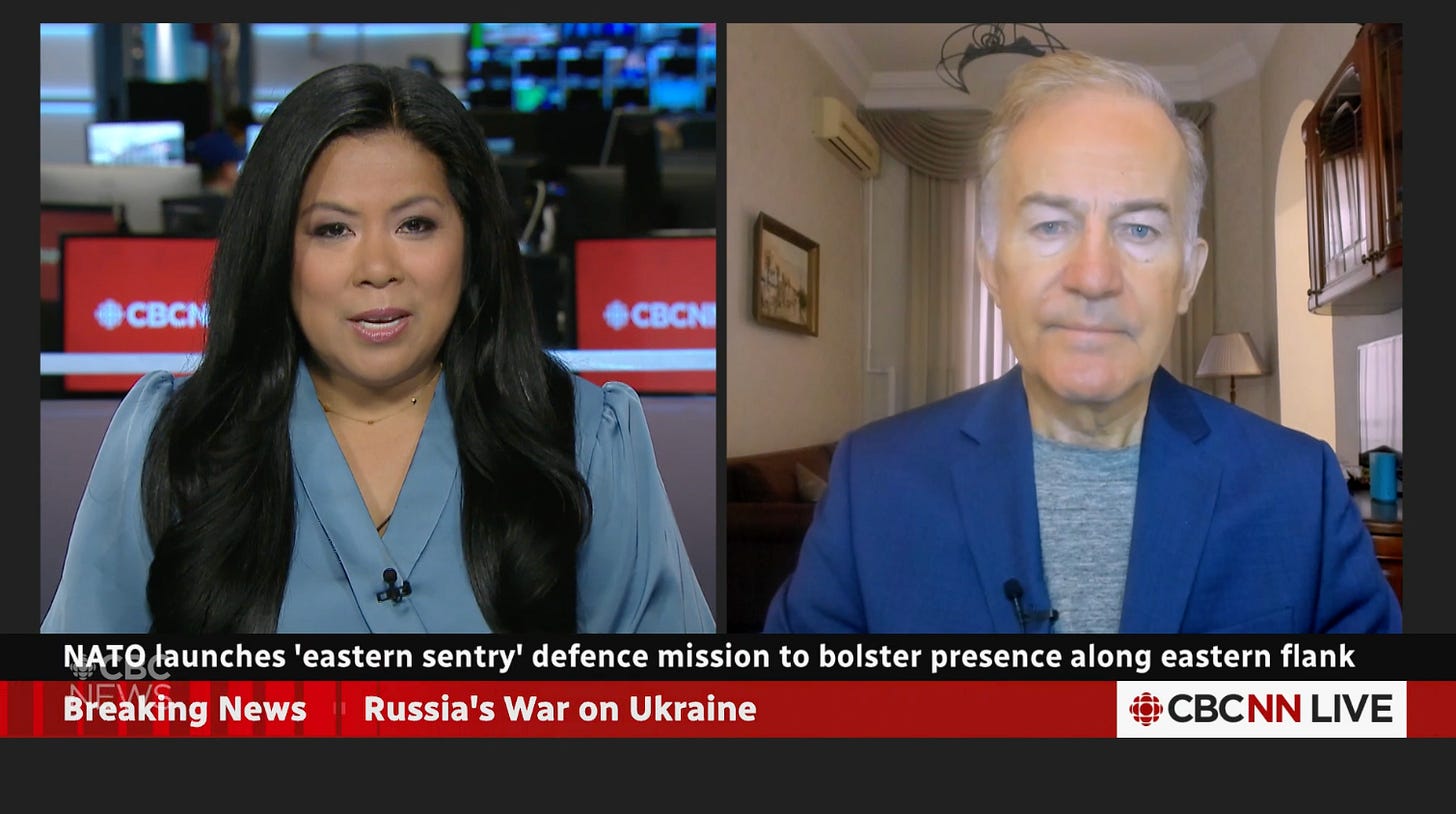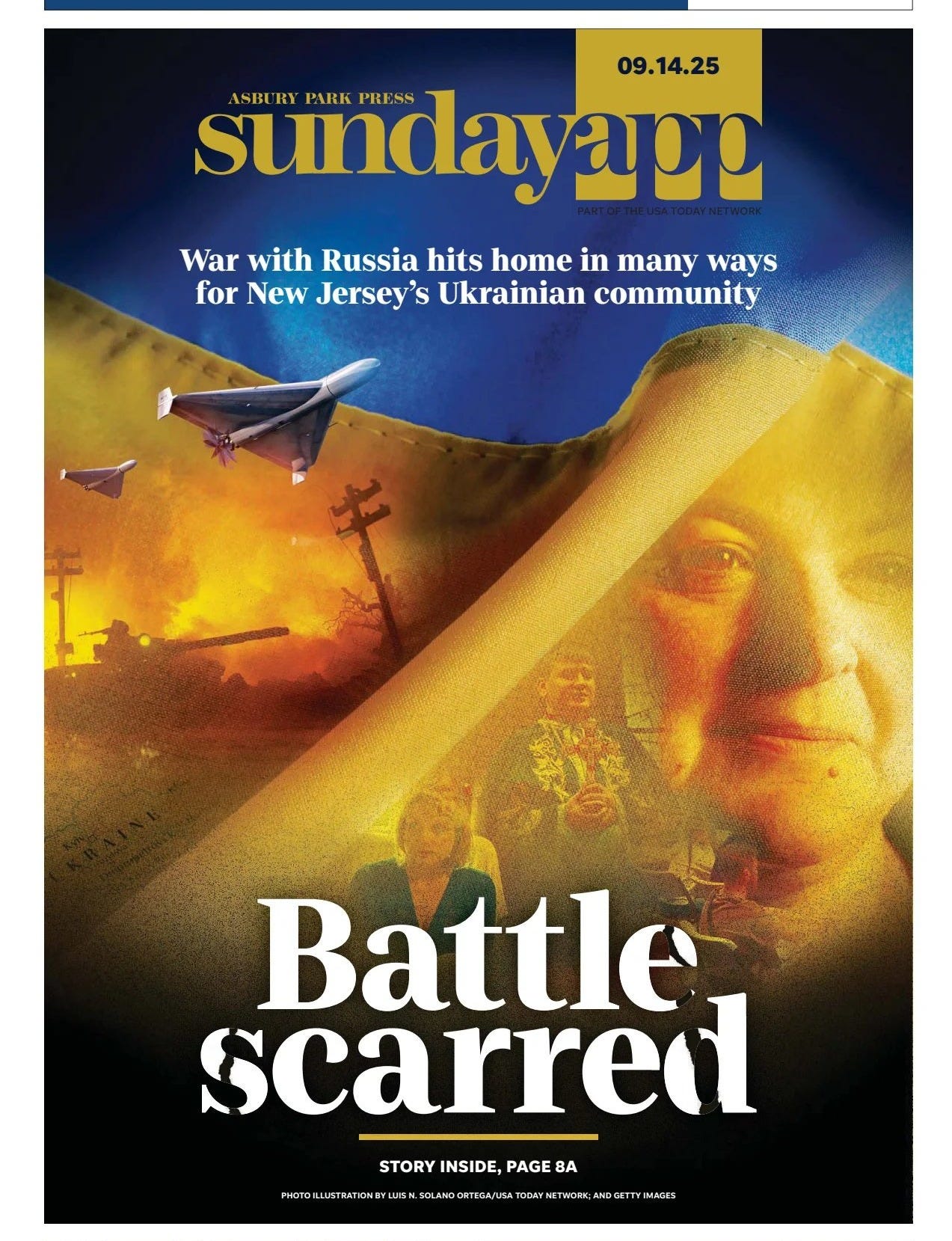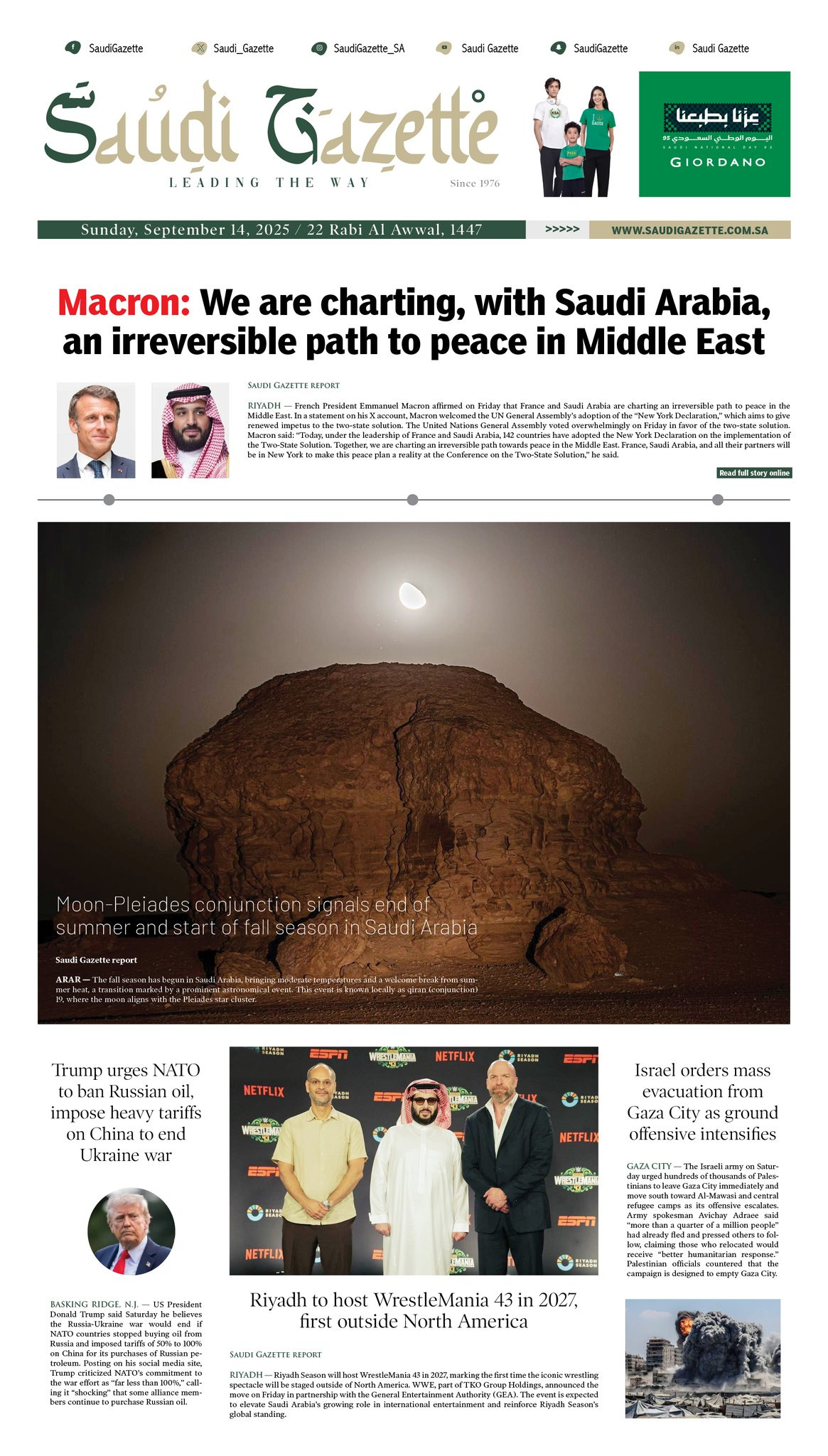Trump’s Royal Visit, Europe’s Royal Headache
As Trump courts the monarch and bullies Brussels, Europe bends — exposing divisions just as Russian drones pierce NATO skies
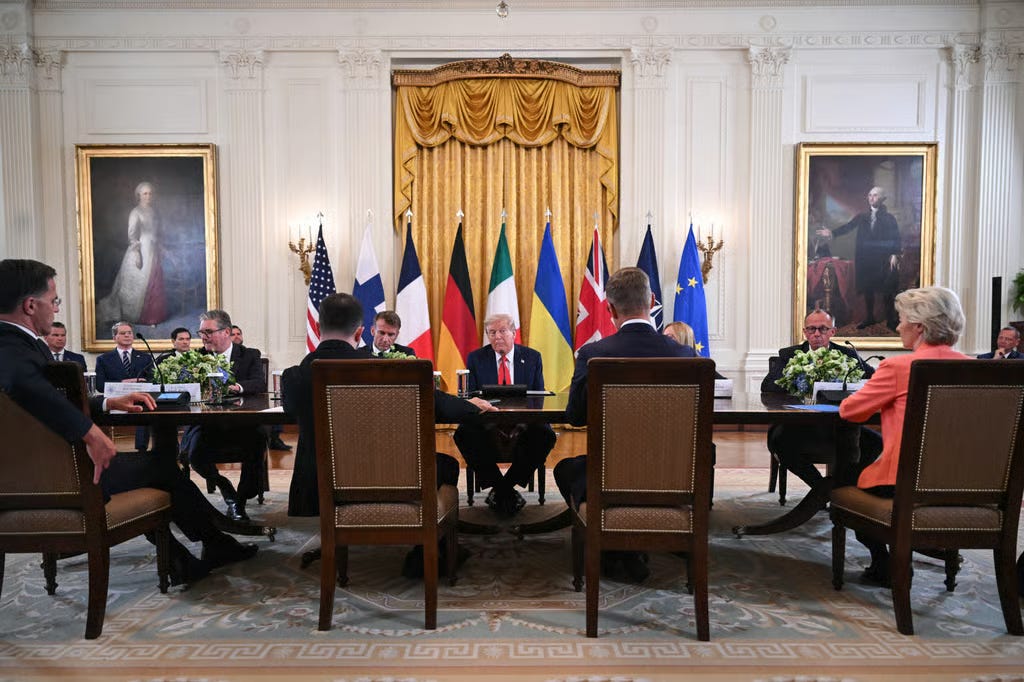
Hot Take: Europe as Trump’s Vassal State
Donald Trump’s upcoming UK state visit — which he insists is unprecedented — comes at a precarious moment for Europe. While almost two dozen Russian drones penetrated Polish NATO airspace last week, exposing just how vulnerable the continent is, EU leaders are bending over backwards to butter up Trump - but they may have reached the roof in terms of how far they can get the Contortionist-in-Chief to bend their way. And with host, Prime Minister Kier Starmer, and neighbour, French President Emmanuel Macron both on extremely thin political ice, it pretty much looks like Trump holds all the cards - just as a slumlord casino owner should. The result: Europe looks less like a partner and more like a vassal state to Washington’s protection racket.
Trump, ever the mafia-style godfather figure, is using his leverage to punish Brussels for many of its sins - including threatening retaliatory action for fining his tech allies (the EU just levied its fourth fine on Google (with a $3.45-billion parking ticket for alleged unfair advertising practices) and to strong-arm the EU into a grotesquely lopsided trade and energy deal — including a $750B energy commitment and $600B in promised investment, much of it in U.S. military kit. Meanwhile, his grotesque Truth Social boast blamed the Ukraine war on former U.S. President Joe Biden and Ukrainian President Volodymyr Zelensky, omitting Russian President Vladimir Putin, who started the war, altogether.
The bigger picture? Europe is waking up to the fact that Trump’s America is not a reliable ally but a fickle boss. His isolationist streak may yet fracture transatlantic unity at a moment when Putin and Belarusian President Aleksandr Lukashenko are probing for weakness. Yes, there are glimmers of resistance in Congress — with Senator Lindsey Graham floating a plan to tie Russia sanctions to budget funding — but Europe should see this for what it is: a warning shot to build real self-reliance and a wake-up call that Putin poses a far bigger and immediate threat than previously thought.
As I told NBC News: perhaps Trump’s Royal visit and some golf rounds will soften his mood. But I wouldn’t bet on it.
Russia hawks in the Republican Party reportedly have a new plan to outmaneuver isolationists, with Sen. Lindsey Graham wanting to tie sanctions against Russia to the coming bill to fund the federal government. “Time is of the essence,” Senator Lindsey Graham (R-SC) and Rep. Brian Fitzpatrick (R-PA) said in a statement I’ve obtained. “We urge our colleagues to consider attaching this legislation to the CR” funding the government. Citing Trump’s pledge Saturday to enact “major Sanction on Russia” when NATO countries stop purchasing oil from Moscow and levy tariffs on China, Graham and Fitzpatrick characterized the president’s vow and their legislation as “joint action with Europe.” Next week, the lawmakers said, they will urge colleagues “on both sides of the aisle to join us in advancing this legislation and standing with freedom against tyranny.” Yet adding the measure to the continuing resolution, or CR, may be the only way to pass a package that Speaker Mike Johnson and Senate Republican Leader John Thune have been reluctant, without President Trump’s explicit approval, to bring up as a stand-alone bill. The gambit is, unsurprisingly, the brainchild of Graham, who has been pushing his colleagues and the administration for months to embrace a measure that would impose secondary sanctions on nations such as India and China that are effectively propping up Moscow’s wartime economy. The idea is that by linking the measure to the eventual stopgap bill to fund the government, congressional GOP leaders could overcome the isolationists in their own conference, pressure Democratic Russia hawks otherwise uneasy about supporting the CR and move a major foreign policy bill without raising Trump’s ire. Including the sanctions bill still may not be enough to win over any more than a handful of congressional Democrats to keep the government open, but it would still hand GOP leaders more leverage - Politico
Hours after Romania reported that a Russian drone had flown through its airspace amid heightened tensions in Eastern Europe’s skies, Ukrainian drones struck a major Russian oil refinery early Sunday. The brief incursion in Romania on Saturday came only days after Russian drones entered Polish airspace, prompting condemnation from Western officials over what they called an escalation of the war in Ukraine. Taken together, the episodes further underscored how drones were making the Ukraine war felt outside the country’s borders. Ukraine’s military said its unmanned aircraft had attacked the Kirishi refinery outside St. Petersburg, some 500 miles from Ukraine. Aleksandr Drozdenko, the governor of the Russian region, said that three drones had been shot down and that falling debris had caused a fire at the plant. The extent of the damage was not immediately clear, and Mr. Drozdenko said the fire had been extinguished by later Sunday morning. While Ukraine has repeatedly struck oil refineries and other Russian energy infrastructure, its target on Sunday was particularly significant. Kirishi is the only major oil refinery in northwestern Russia, and it is one of the country’s largest, producing things like motor fuel, paraffin and roofing materials. The overnight attack on the refinery took place hours after Romania said on Saturday that its air force had detected a Russian drone in the country’s air space. The Defense Ministry of Romania, a NATO member, said in a statement that the country had deployed two F-16 aircraft shortly after 6 p.m. local time to monitor Russian airstrikes on Ukrainian infrastructure near the Romanian border. About 20 minutes later, they detected the drone in Romanian airspace. Romania’s foreign minister, Oana-Silvia Toiu, said on social media that the Romanian Air Force tracked the Russian drone in the country’s airspace for 50 minutes before it left without causing any damage or casualties. She called the intrusion “unacceptable and reckless.” The Defense Ministry said the drone had not flown over populated areas or posed an imminent danger to people’s safety. As of Sunday morning, the Russian Defense Ministry had not responded publicly to the Romanian comments - NYT
Watch my Saturday prime time interview with CBC News, where I unpacked the military and political fallout from Russia’s drone incursion into Polish and NATO airspace. I invoked the Canadian euphemism of “shooting a canoe with a cannon” to describe NATO’s expensive and ineffective response….
At least 48 people killed since dawn as artillery shelling and gunfire by Israeli forces reported in Gaza City, as well as shelling from boats. Meanwhile, Qatar is hosting a summit of Arab and Muslim leaders on Sunday and Monday to plot a course of action after Israel’s “cowardly” attack on Doha. Secretary of State Marco Rubio has said the United States is “not happy” about Israel’s air strikes on Hamas in Qatar, but it will not change Washington’s allied status with Israel. According to Faisal Abdulhameed al-Mudhahka, chief editor at the Doha-based Gulf Times, the emergency meeting in Qatar is very likely to result in concrete measures against Israel instead of just strongly worded condemnations. “It’s been the narrative of the Arab summit that there are only statements of condemnation. But I don’t think that’s the case today,” al-Mudhahka told Al Jazeera. “I think it will be [the adoption of] certain measures that will give a very strong statement to Netanyahu.” The Arab and Muslim world is intently awaiting the outcome of the meeting, he added, describing it as a show of solidarity by the region. Israel’s war on Gaza has killed at least 64,871 people and wounded 164,610 since October 2023. Thousands more are believed to be under the rubble - Al Jazeera
Israeli soldiers conducted a raid on Saturday at the West Bank home of Basel Adra, one of the directors of Oscar-winning film No Other Land, the Palestinian filmmaker confirmed himself. Adra said soldiers had asked his wife, Suha, for his whereabouts and proceeded to search through her phone, adding that their nine-month-old daughter was home at the time of the raid. Earlier on Saturday, Israeli settlers attacked his village, injuring two of Adra’s brothers and one cousin, the director told press agency The Associated Press (AP). Adra had accompanied his family members to the hospital, where he found out Israeli soldiers had stormed his home. No Other Land, a joint Palestinian-Israeli production directed by Basel Adra, Hamdan Ballal, Yuval Abraham and Rachel Szor, chronicles the struggle by residents to stop the Israeli military from destroying the occupied West Bank's Masafer Yatta, and the gradual expulsion of its community. Adra has dedicated his career as a journalist and filmmaker chronicling settler violence in Masafer Yatta. He described Saturday’s event as “horrific.” - Euronews
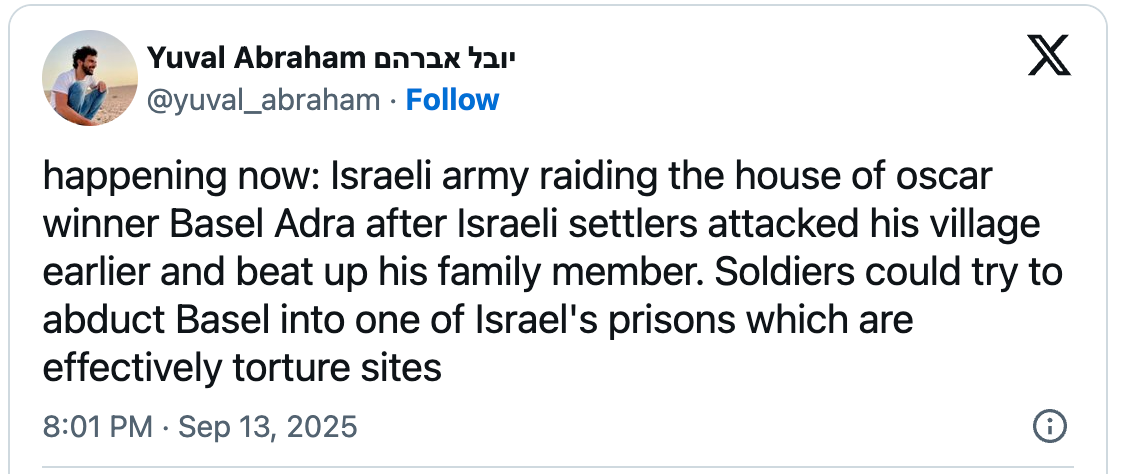
Chinese officials and businesses have been busy inking billions of dollars' worth of new infrastructure and technology deals with Central Asian governments and companies while announcing new agreements to lessen the barrier for Chinese businesses to operate across the region. "China is now completely integrated into the region. There is no denying its overwhelming presence in Central Asia," Frank Maracchione, an expert on China's engagement with Central Asia at the University of Kent, told RFE/RL. This reality is most apparent in Central Asia's two biggest economies: Kazakhstan and Uzbekistan. At the recently-held Shanghai Cooperation Organization (SCO) Summit and at events on the sidelines around the massive military parade in Beijing, Kazakh President Qasym-Zhomart Toqaev signed more than 70 new commercial deals worth $15 billion that included investments in oil and gas projects, petrochemicals, transport corridors, logistics hubs, and digital technologies. Uzbek President Shavkat Mirziyoyev also left China with new investments in construction, nuclear energy, higher education, and the automotive industry, as well as formal backing at the SCO for a long-discussed multibillion-dollar railway project connecting Uzbekistan to China through Kyrgyzstan that has been championed by Tashkent. "It's no longer just about Beijing's relationship with Central Asian governments or only big infrastructure projects," Maracchione said. "A lot of people across the region work for Chinese companies, buy Chinese products, and are learning Chinese. China is a part of everyday life now." For Temur Umarov, a fellow at the Carnegie Russia Eurasia Center in Berlin, the flurry of activity in China highlights the steady and predictable engagement Beijing has followed with Central Asia in recent years that has seen it become an increasingly important economic, and now political, player - RFE/RL
Dubai’s latest jet-setters aren’t hedge funders or influencers, they’re poodles and pomeranians: a UAE-based startup called Fly JetPets now charters planes for animals and their owners, and it says demand is strong: Hundreds of monthly requests are rolling in as owners look to holiday with their furry “family,” AGBI reported. A charter can cost $10,000 an hour. If this business was going to succeed anywhere, it’s in the region. As Semafor columnist Camilla Wright recently wrote, for some young sheikhs, the ultimate status symbol isn’t a Ferrari, it’s a lion on a leash. Moving that lion from Dubai to Milan, well, that’s the ultimate flex - Semafor
The New York Times enters its post-text era, Puck Reports. The paper of record is quickly evolving from a lifestyle product into a walled-garden multimedia platform, turning its biggest stars—Ezra, Swan, Maggie—into talking heads, and transforming itself into CNN faster than CNN can become the Times.


